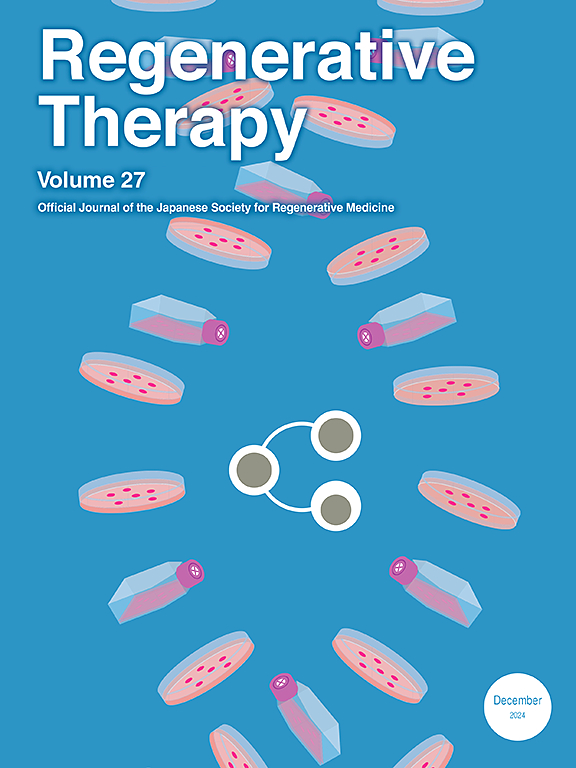Co-culture with adipose mesenchymal stem cells promotes Blastocyst formation and gene expression in embryos from aged mice
IF 3.4
3区 环境科学与生态学
Q3 CELL & TISSUE ENGINEERING
引用次数: 0
Abstract
Recent studies have highlighted the positive effects of co-culturing embryos with stem cells on embryo development in various mammalian systems. Stem cells secrete numerous factors, including cytokines, growth factors, and microRNAs, which promote embryo development. However, the impact of stem cells on the development of embryos derived from aged mice's oocytes remains poorly understood. This study evaluated the co-culture effects of adipose tissue-derived mesenchymal stem cells (ADMSCs) on zygotes, focusing on the developmental potential of fertilized embryos. Embryo quality was assessed through staining techniques to measure trophectoderm (TE), inner cell mass (ICM), and total blastocyst cell numbers during in vitro culture. Results demonstrated that ADMSC co-culture significantly improved zygote cleavage and blastocyst development rates, particularly in embryos derived from aged mice. Enhanced implantation and post-implantation potential were observed in embryos from both young and aged mice. Notably, co-culture increased TE, ICM, and total blastocyst cell numbers in aged mice-derived embryos without inducing apoptosis in blastocysts. Gene expression analysis revealed upregulation of OCT4 and G6PDH, associated with pluripotency and glucose metabolism, particularly in embryos from aged mice, while the heat stress marker HSP70 showed no significant changes. These findings demonstrate the potential of ADMSC co-culture as a beneficial protocol for improving embryo development. These findings from this study could offer an important basis for future mechanistic studies in this area.
求助全文
约1分钟内获得全文
求助全文
来源期刊

Regenerative Therapy
Engineering-Biomedical Engineering
CiteScore
6.00
自引率
2.30%
发文量
106
审稿时长
49 days
期刊介绍:
Regenerative Therapy is the official peer-reviewed online journal of the Japanese Society for Regenerative Medicine.
Regenerative Therapy is a multidisciplinary journal that publishes original articles and reviews of basic research, clinical translation, industrial development, and regulatory issues focusing on stem cell biology, tissue engineering, and regenerative medicine.
 求助内容:
求助内容: 应助结果提醒方式:
应助结果提醒方式:


